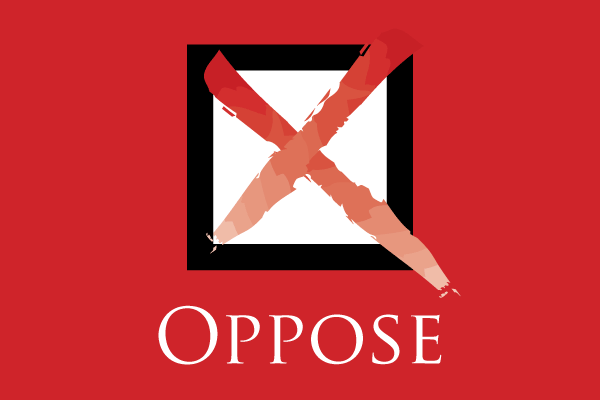 A California Chamber of Commerce-opposed bill that requires double the “regular rate” of pay for work on Thanksgiving passed the Assembly this week.
A California Chamber of Commerce-opposed bill that requires double the “regular rate” of pay for work on Thanksgiving passed the Assembly this week.
A previous version of the bill, also opposed by the CalChamber, failed to pass the Assembly last year.
The amended version of AB 67 (Gonzalez; D-San Diego) unfairly targets two classifications of employers, increases their costs, and creates a competitive disadvantage by forcing them to recognize Thanksgiving as a “family holiday” and compensate all employees with double the regular rate of pay for work performed on that day.
Targets Retailers, Grocers
The author of AB 67 has argued the bill is needed to compensate employees who are forced to give up their family time to work on Thanksgiving. The most recent amendments to AB 67 indicate otherwise.
AB 67 now targets only two industries—retail store and grocery store establishments—to force them to pay double the “regular rate” of pay on a “family holiday,” defined as Thanksgiving. Any other employer that opens on Thanksgiving can continue to pay its employees minimum wage.
This discriminatory treatment of only two classifications of employers demonstrates that AB 67 is intended to punish retail and grocery stores, rather than compensate employees for time away from their family on Thanksgiving, as the author has argued.
Competitive Disadvantage
AB 67 unilaterally increases the cost of doing business only for employers that have a “physical store” in California, thereby automatically placing them at a competitive disadvantage with online retailers and out-of-state businesses that would not be subject to this costly mandate.
Already Industry Standard
Many “retail store establishment” employers surveyed confirm they voluntarily pay their employees time-and-a-half for work performed on Thanksgiving.
Despite this general industry standard of higher compensation, AB 67 seeks to increase these employers’ costs even further. If these targeted employers change their behavior and open at 12:01 a.m. on the Friday following Thanksgiving, employees will lose out on the extra compensation they currently are receiving for work performed on this day.
Litigation Threat
AB 67 does not require double payment of the employee’s hourly rate, but rather double the employee’s “regular rate” of pay. The difference is significant.
Determining the regular rate of pay of many employees requires a detailed calculation that goes beyond an employee’s hourly pay. As defined by the Division of Labor Standards Enforcement (DLSE), the “regular rate of pay includes a number of different kinds of remuneration, for example hourly earnings, salary, piecework earnings, commissions, certain bonuses, and the value of meals and lodging, ” according to the DLSE enforcement policies manual.
Although this calculation is performed for overtime purposes, it is subject to good faith errors as to what types of “remuneration” should be included in the calculation.
Because AB 67 provisions are included in Section 511.5 of the Labor Code, they are subject to the Private Attorneys General Act (PAGA; Labor Code Section 2698 et seq.). Good faith errors in calculating the regular rate of pay or failing to comply with other AB 67 provisions would subject California employers to another threat of litigation.
PAGA lawsuits in California increased more than 400% between 2005 and 2013, according to the April 16, 2014 Los Angeles Daily Journal article, “An Alternative to Employee Class Actions.”
Key Vote
The 43-32 vote on AB 67 was as follows:
Ayes: Alejo (D-Salinas), Atkins (D-San Diego), Bloom (D-Santa Monica), Bonilla (D-Concord), Bonta (D-Oakland), Brown (D-San Bernardino), Burke (D-Inglewood), Calderon (D-Whittier), Campos (D-San Jose), Chau (D-Monterey Park), Chiu (D-San Francisco), Chu (D-San Jose), Eggman (D-Stockton), C. Garcia (D-Bell Gardens), E. Garcia (D-Coachella), Gatto (D-Glendale), Gipson (D-Carson), Gomez (D-Los Angeles), Gonzalez (D-San Diego), Gordon (D-Menlo Park), Gray (D-Merced), R. Hernández (D-West Covina), Holden (D-Pasadena), Jones-Sawyer (D-South Los Angeles), Levine (D-San Rafael), Lopez (D-San Fernando), Low (D-Campbell), McCarty (D-Sacramento), Medina (D-Riverside), Mullin (D-South San Francisco), Nazarian (D-Sherman Oaks), O’Donnell (D-Long Beach), Quirk (D-Hayward), Rendon (D-Lakewood), Ridley-Thomas (D-Los Angeles), Rodriguez (D-Pomona), Santiago (D-Los Angeles), M. Stone (D-Scotts Valley), Thurmond (D-Richmond), Ting (D-San Francisco), Weber (D-San Diego), Williams (D-Carpinteria), Wood (D-Healdsburg).
Noes: Achadjian (R-San Luis Obispo), Allen (R-Huntington Beach), Baker (R-San Ramon), Bigelow (R-O’Neals), Brough (R-Dana Point), Chang (R-Diamond Bar), Chávez (R-Oceanside), Cooley (D-Rancho Cordova), Dababneh (D-Encino), Dahle (R-Bieber), Dodd (D-Napa), Frazier (D-Oakley), Gaines (R-El Dorado Hills), Gallagher (R-Yuba City), Grove (R-Bakersfield), Hadley (R-Torrance), Harper (R-Huntington Beach), Irwin (D-Thousand Oaks), Jones (R-Santee), Kim (R-Fullerton), Lackey (R-Palmdale), Maienschein (R-San Diego), Mathis (R-Visalia), Mayes (R-Yucca Valley), Melendez (R-Lake Elsinore), Obernolte (R-Big Bear Lake), Olsen (R-Modesto), Patterson (R-Fresno), Steinorth (R-Rancho Cucamonga), Wagner (R-Irvine), Waldron (R-Escondido), Wilk (R-Santa Clarita).
Absent/abstaining/not voting: Cooper (D-Elk Grove), Daly (D-Anaheim), Linder (R-Corona), Salas (D-Bakersfield).
AB 67 now goes to the Senate for policy committee hearings.

